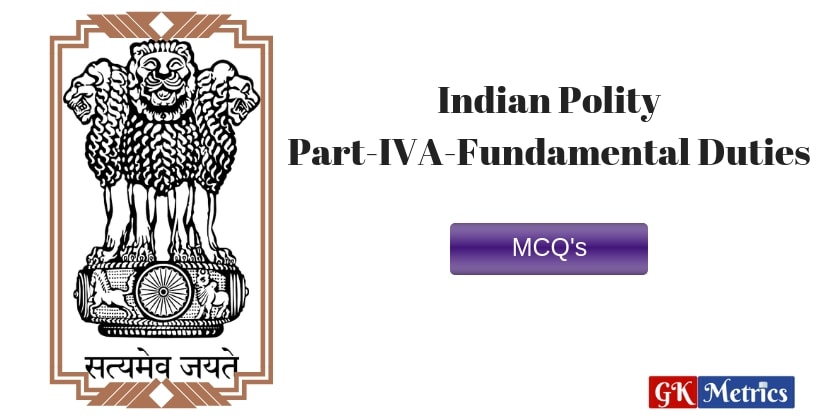21. Consider the following statements:
1. The duties enumerated in Art. 51-A is non-statutory duties and are not enforceable by law.
2. Violation of the Fundamental Duties can be met with Punishment but the constitution doesn’t mention any penalty for its violation.
3. Parliament can prescribe the penalty for the violation of Specific Duties.
A. 1 and 2 only
B. 1 and 3 only
C. 2 and 3 only
D. 1, 2 and 3
[toggle] Answer – C [/toggle]
22. Which among the following is not the fundamental duties?
A. To abide by the constitution and respect the national flag and the national anthem
B. To defame the country
C. To promote the spirit of common brotherhood among all the people in India
D. To develop the scientific temper and spirit of inquiry
[toggle] Answer – B [/toggle]
23. The 86th Constitutional Amendment Act, 2002 puts the duty on parent or guardian to provide opportunities for education to his Child or Ward in the age of
A. 6 to 14
B. 6 to 10
C. 5 to 15
D. 6 to 16
[toggle] Answer – A [/toggle]
24. To protect the sovereignty, unity, and integrity of India is the?
A. Fundamental right of the citizen
B. Fundamental duties of the citizen
C. Directive Principles of citizen
D. All of the above
[toggle] Answer – B [/toggle]
25. Which of the following can be an amendment by the constitution?
1. Fundamental duties
2. Fundamental Rights
3. Directive Principles
A. 1 and 2 only
B. 1 and 3 only
C. 2 and 3 only
D. 1, 2 and 3
[toggle] Answer – D[/toggle]

